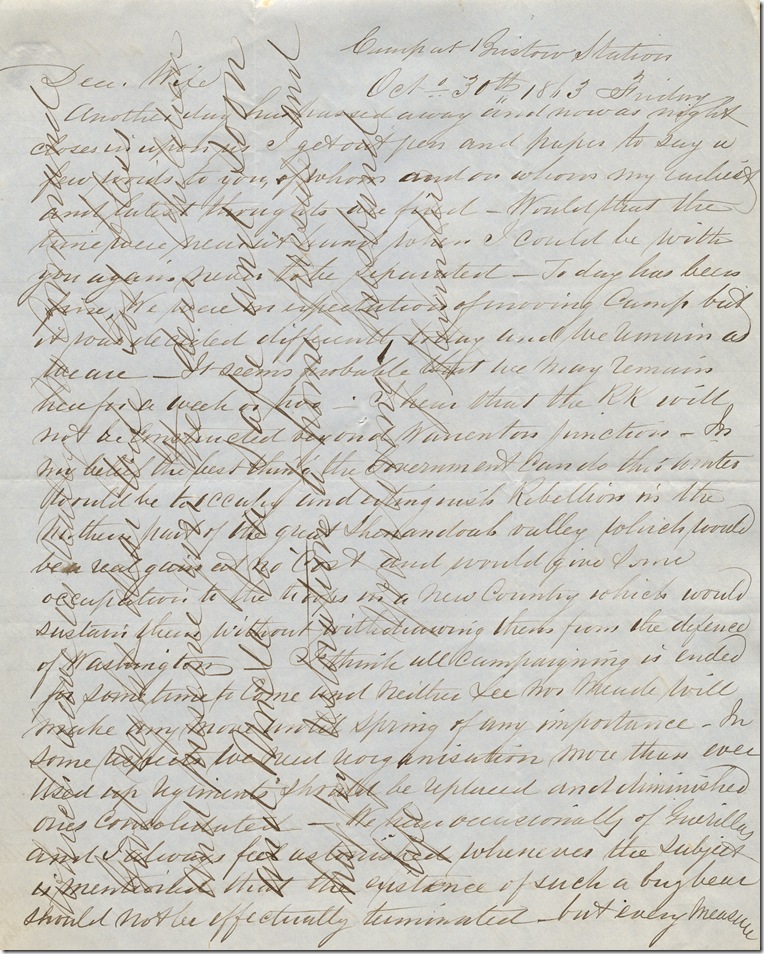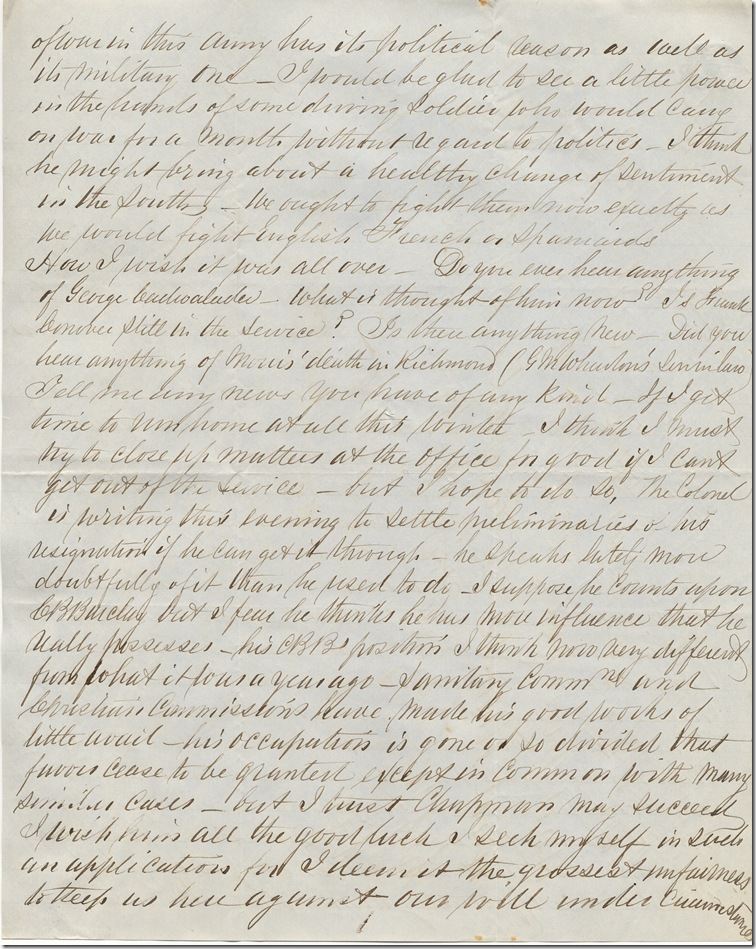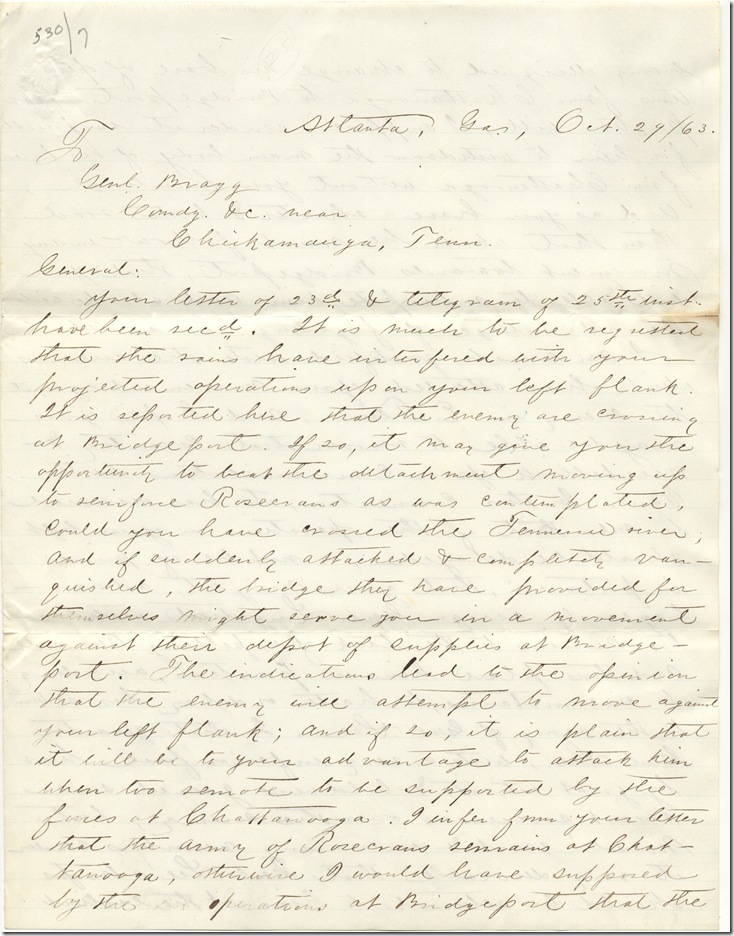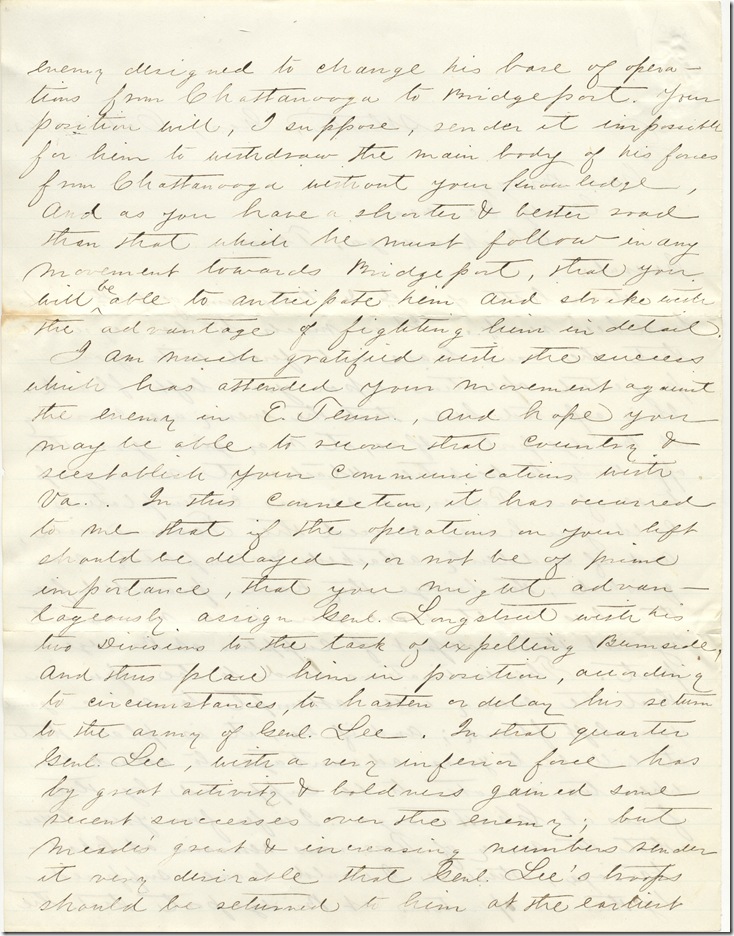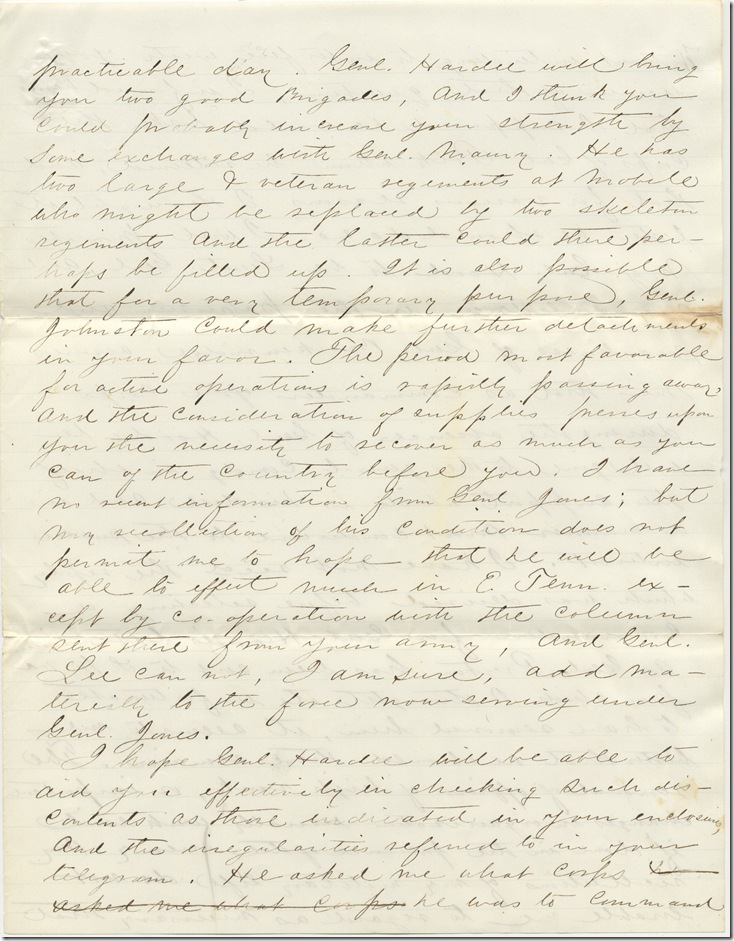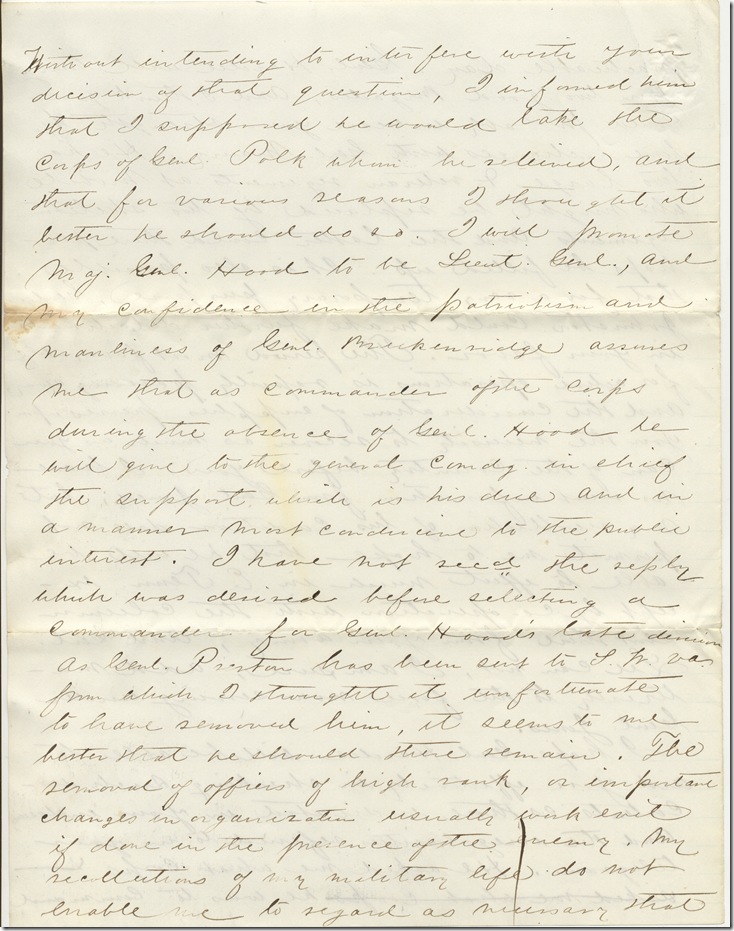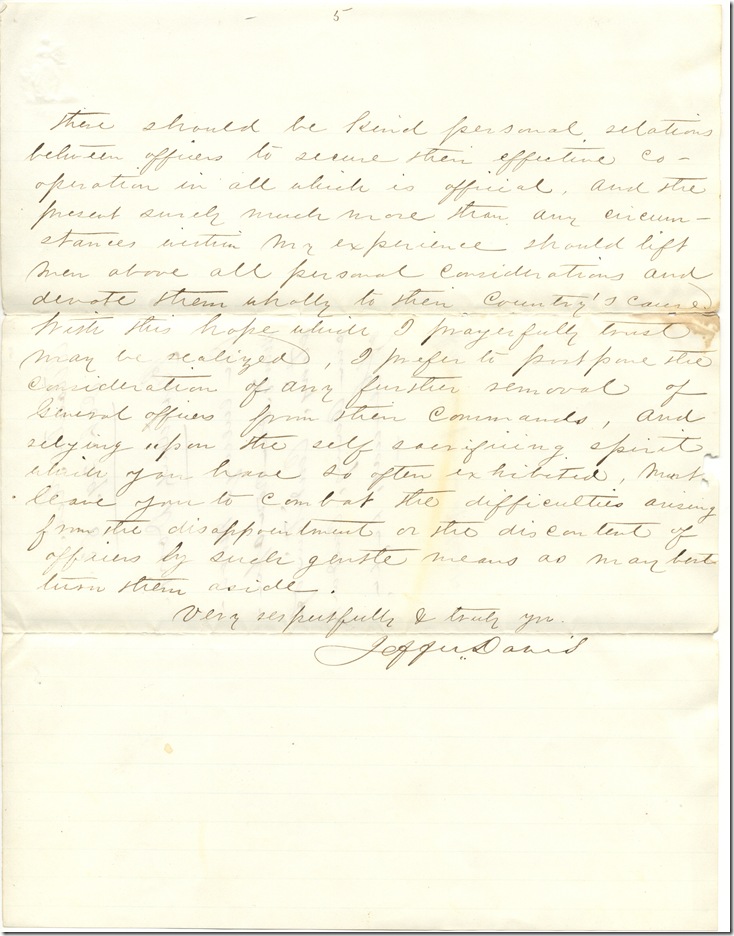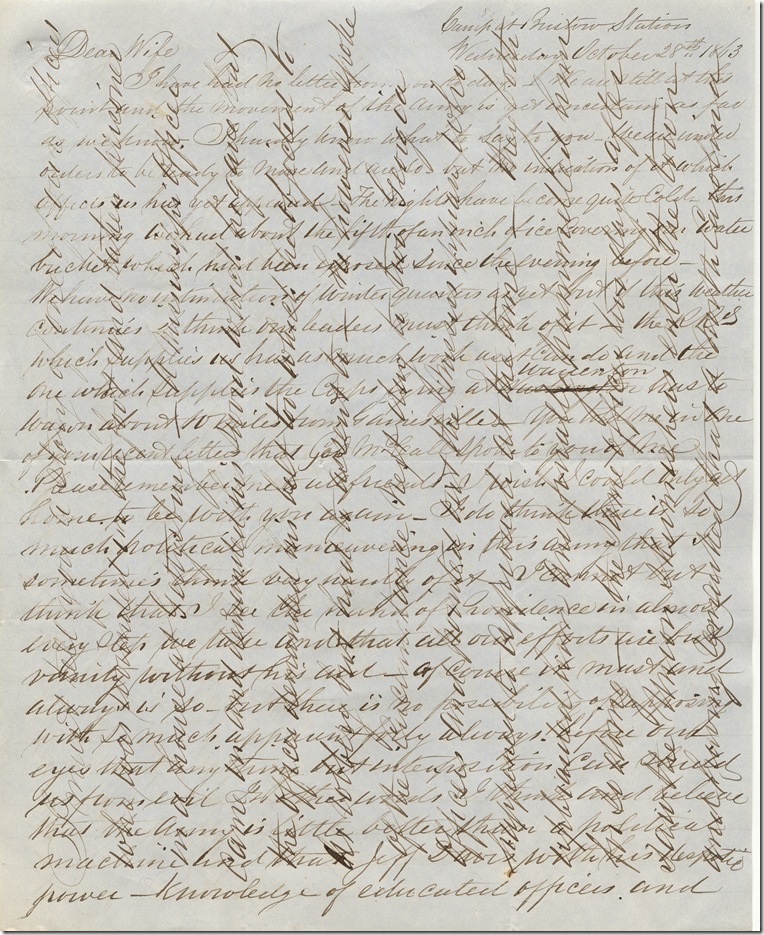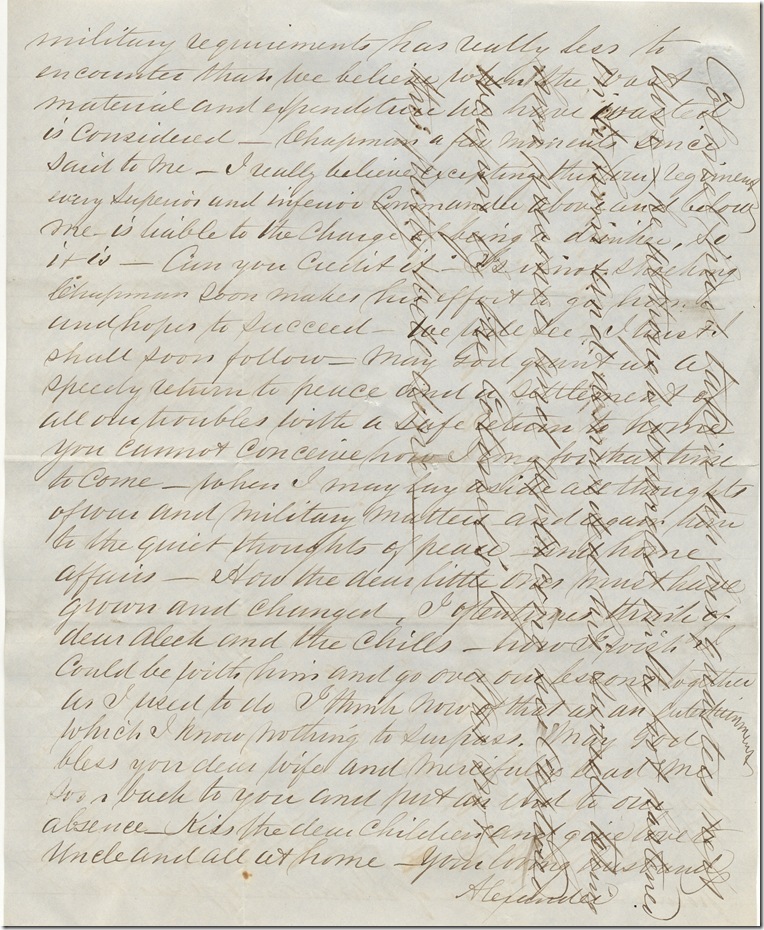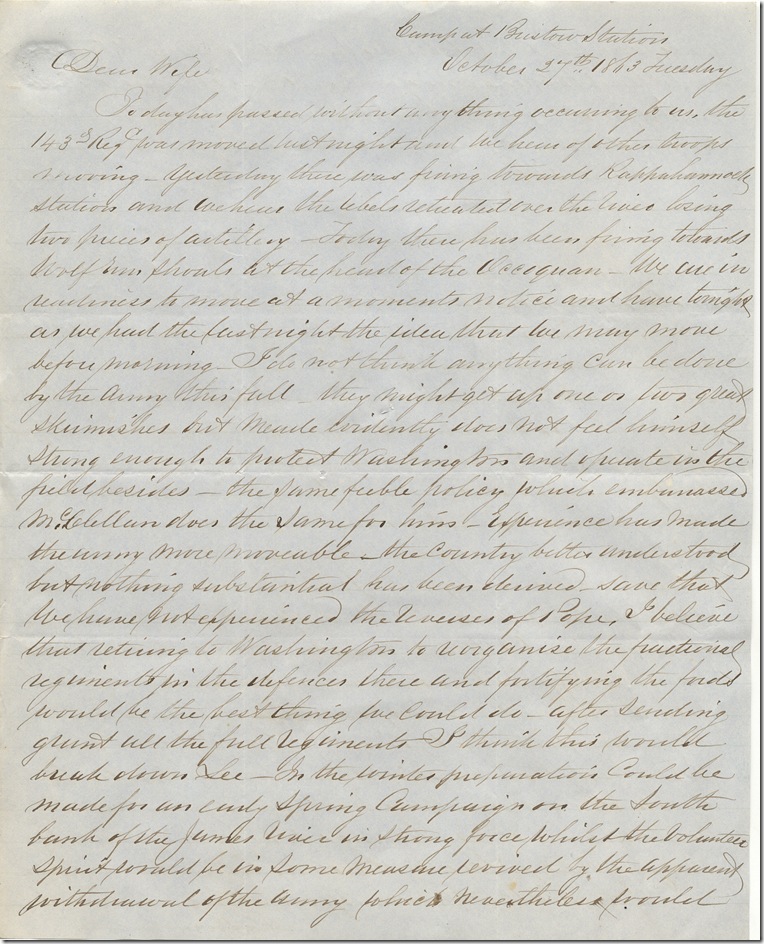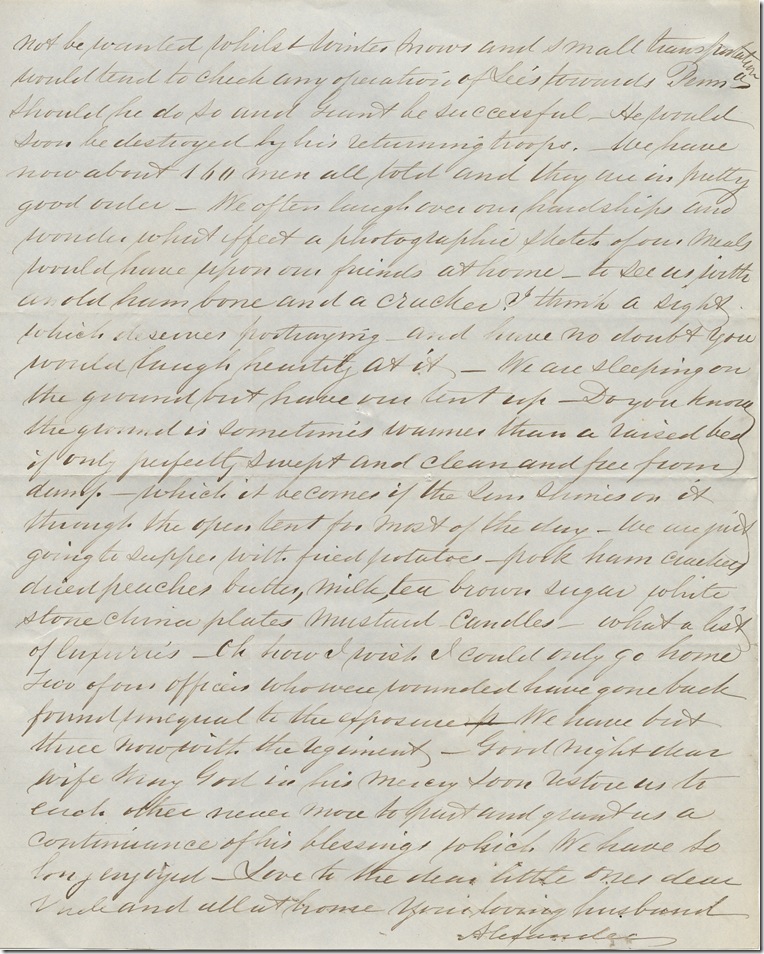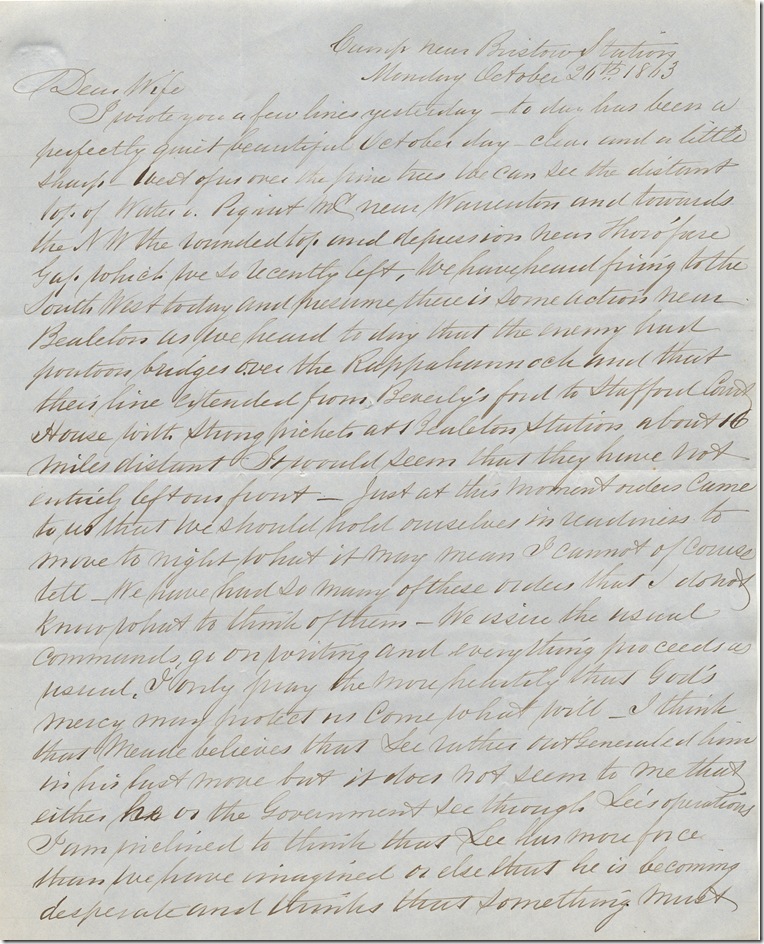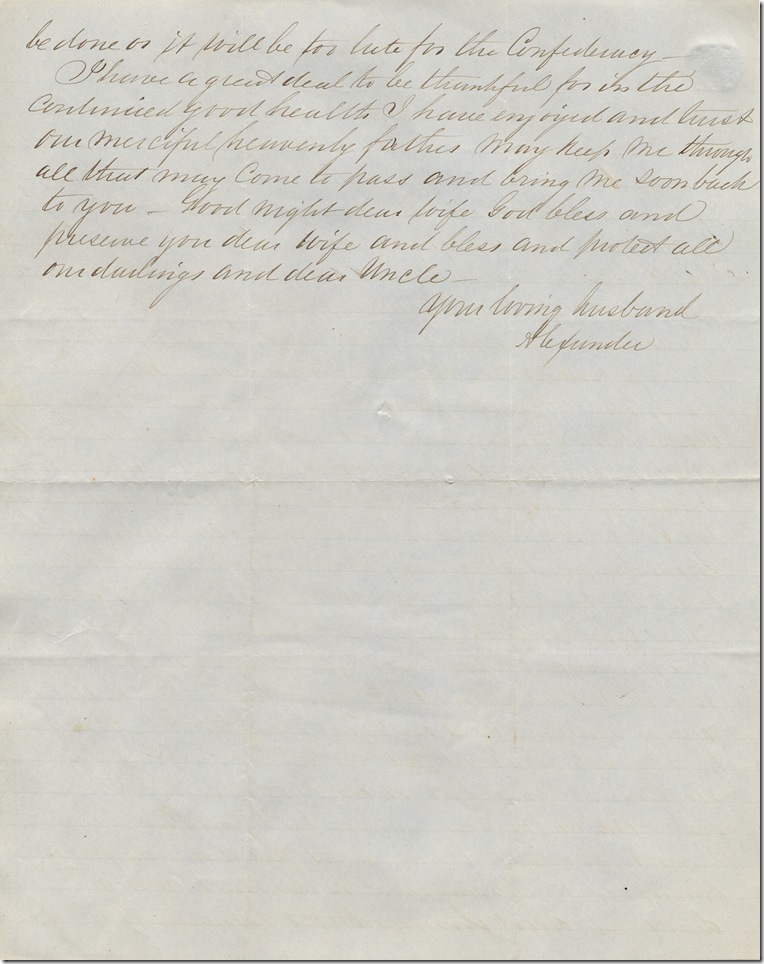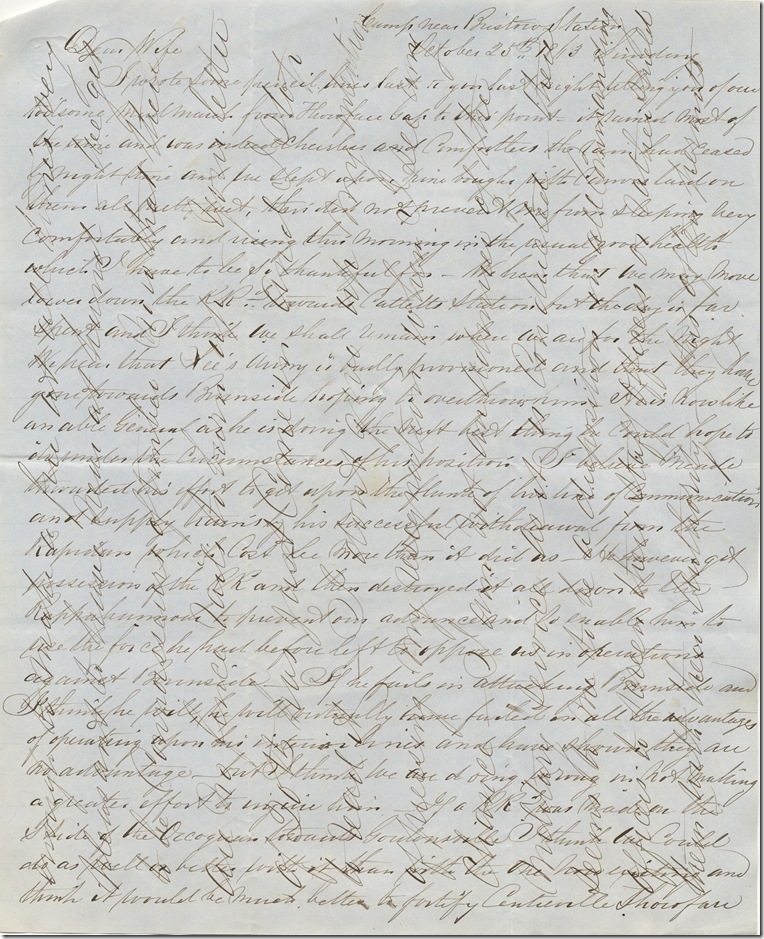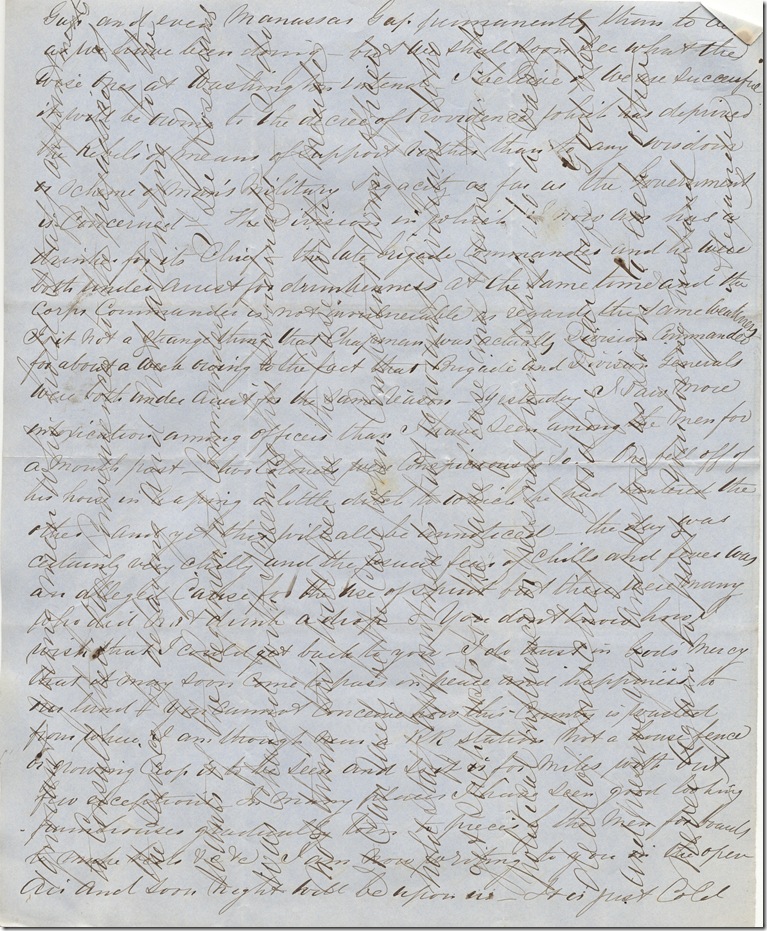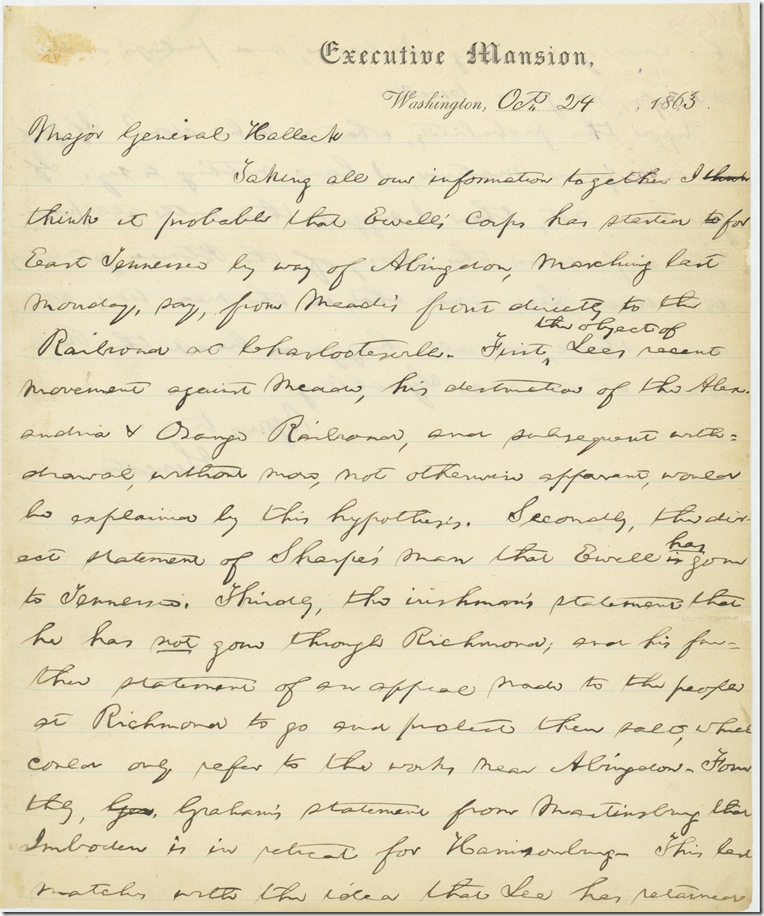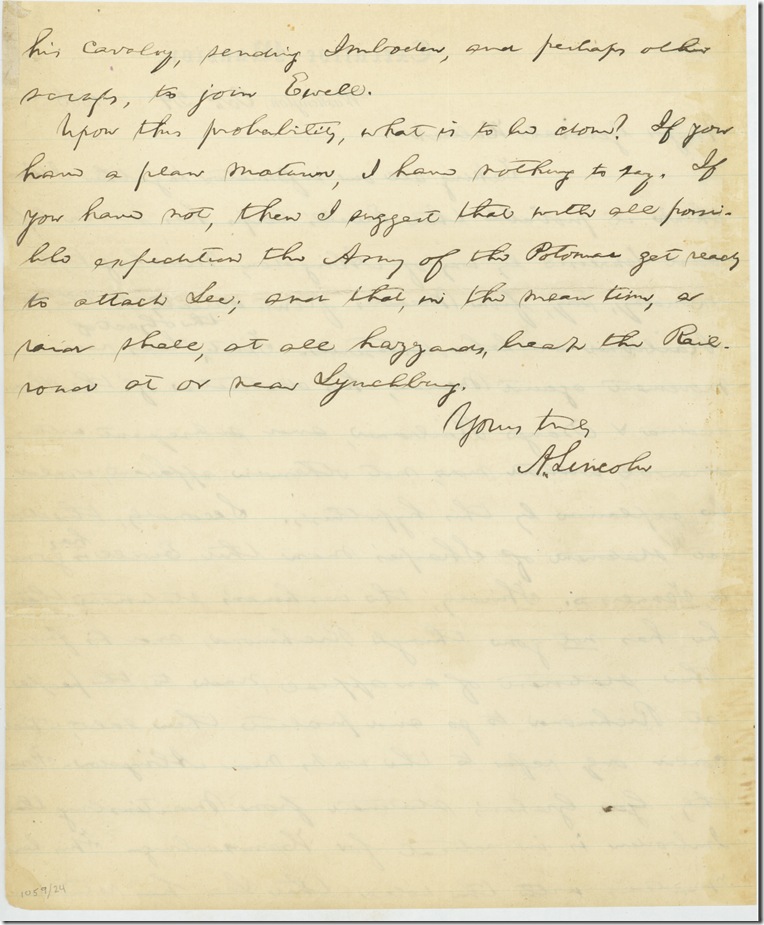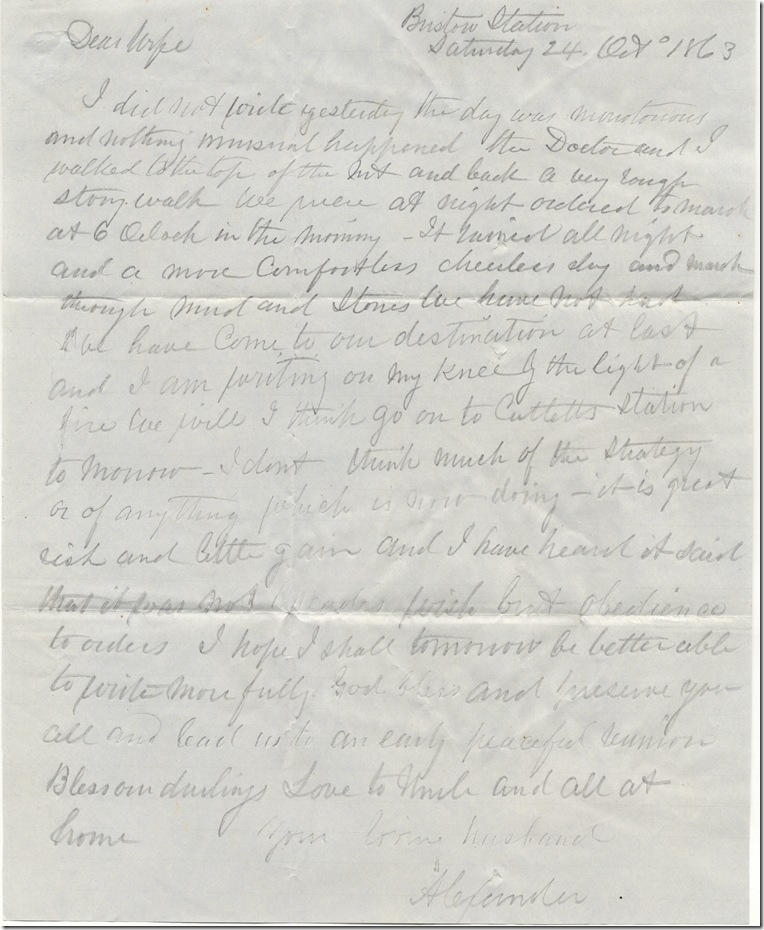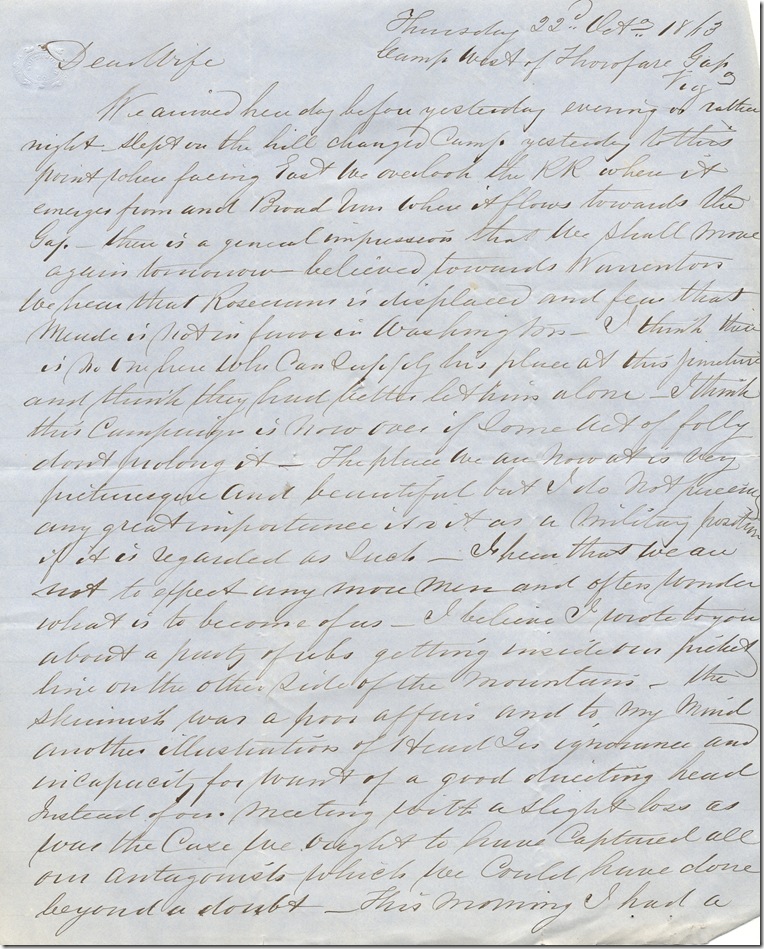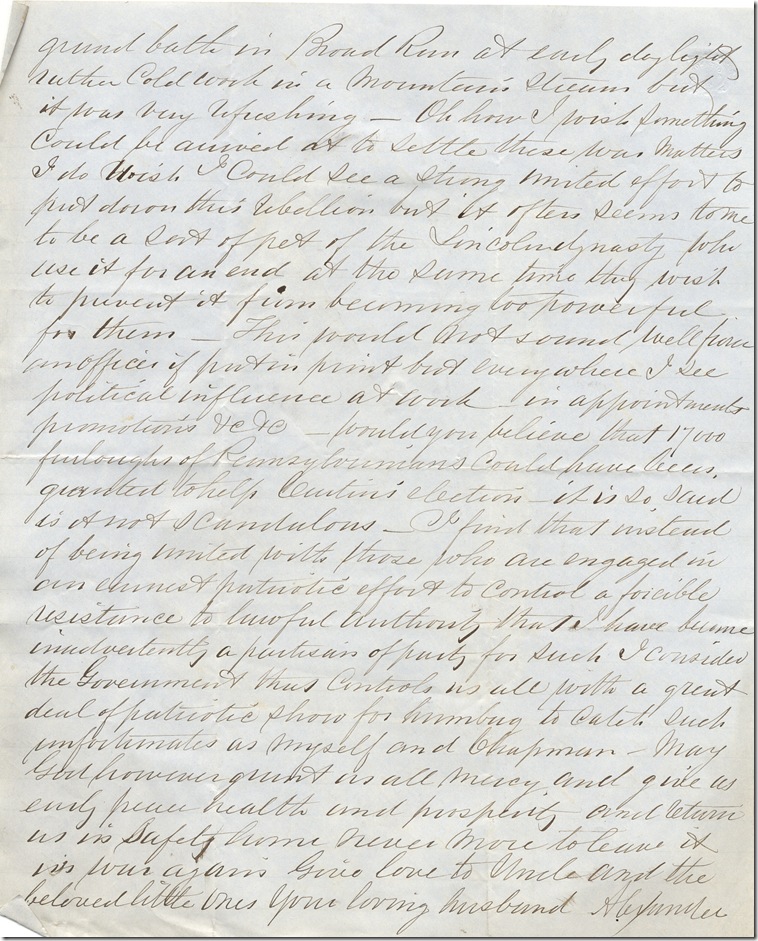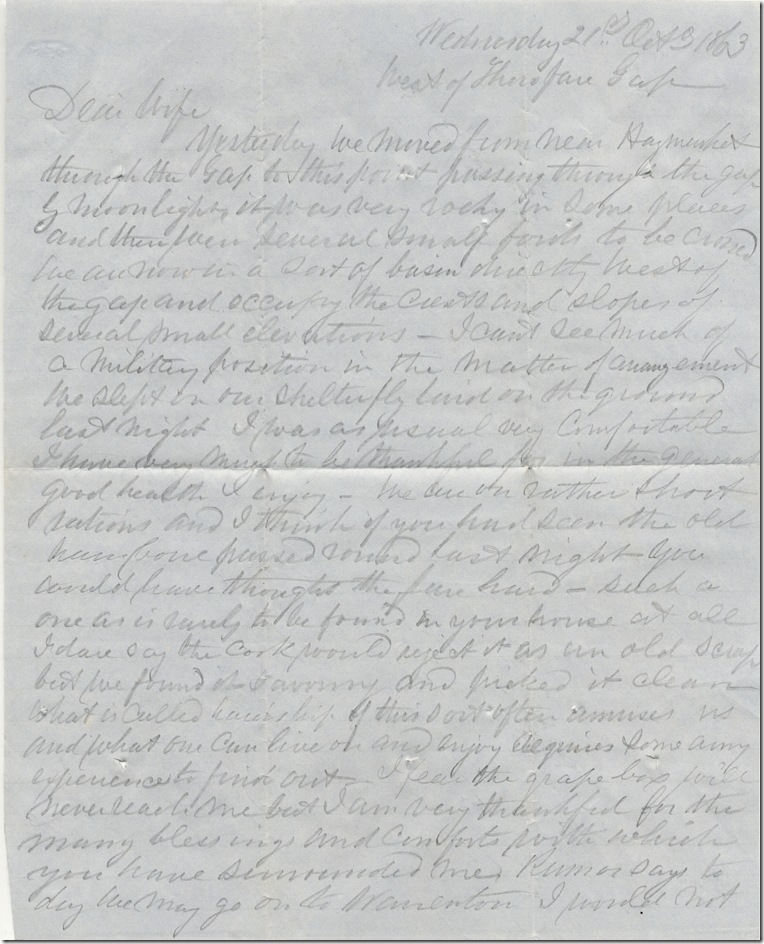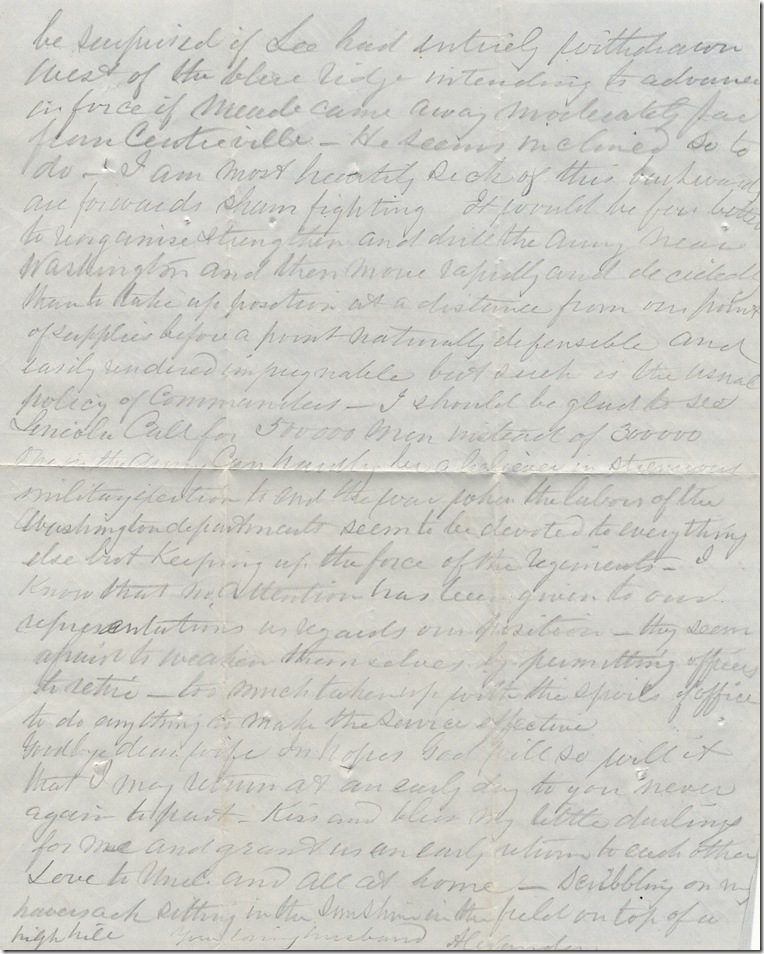Alexander Biddle was a member of the prominent Philadelphia Biddle family and was married to Julia Williams Rush, the granddaughter of Dr. Benjamin Rush. Biddle served with the 121st Pennsylvania Volunteer Infantry, beginning in September 1862. Starting out as a major, he would participate in Fredericksburg and Gettysburg, among other engagements, and would leave the service as a lieutenant colonel. (He was commissioned, but never mustered, as colonel)
Transcript:
Camp at Bristow Station
Oct 30th 1863 Friday
Dear Wife,
Another day has passed away and now as night closes in upon us I get out pen and paper to say a few words to you, of whom and on whom my earliest and latest thoughts are fixed. Would that the time was near at hand when I could be with you again, never to be separated. Today has been fine, we were in expectation of moving Camp, but it was decided differently today and we remain as we are. It seems probably that we may remain here for a week or two. I hear that the RR will not be constructed beyond Warrenton Junction—In my belief the best thing the Government can do this winter would be to occupy and extinguish Rebellion in the Northern part of the great Shenandoah valley which would be a real gain at no cost and would give some occupation to the troops in a new country which would sustain them without withdrawing them from the defence of Washington. I think all campaigning is ended for some time to come and neither Lee nor Meade will make any move until spring of any importance. In some respects we need reorganisation more than ever. Used up regiments should be replaced and diminished ones consolidated. We hear occasionally of Guerillas and I always feel astonished whenever the subject is mentioned that the existence of such a bugbear should not be effectually terminated—but every measure of war in this army has its political reason as well as its military one. I would be glad to see a little power in the hands of some driving soldier who would carry on war for a month without regard to politics. I think he might bring about a healthy change of sentiment in the South. We ought to fight them now exactly as we would fight English, French or Spaniards.
How I wish it was all over— Do you ever hear anything of George Cadwalader— What is thought of him now? Is Frank Conover still in the service? Is there anything new—Did you hear anything of Morris’ death in Richmond (GM Wharton’s son in law) Tell me any news you have of any kind—if I get time to run home at all this Winter— I think I must try to close up matters at the office for good if I can’t get out of the service—but I hope to do so. The Colonel is writing this evening to settle preliminaries of his resignation if he can get it through—he speaks lately more doubtfully of it than he used to do. I suppose he counts upon CB Barclay but I fear he thinks he has more influence that he really possesses- his CBB position I think now very different from what it was a year ago. Sanitary Comm and Christian commissions have made his good works of little avail—his occupation is gone on so divided that favors cease to be granted except in common with many similar cases—but I trust Chapman may succeed. I wish him all the good luck I seek myself in such a application for I deem it the grossest unfairness to keep us here against our will under circumstances which have us really no command. Good night dear Wife, God bless and preserve you, the dear children and Uncle to a safe and soon happy restoration to home fireside and life.
Your loving husband,
Alexander
Citation: Alexander Biddle (1819-1899), autograph letter signed to Julia Williams Rush Biddle, 30 October 1863. Rush IV:30:36
